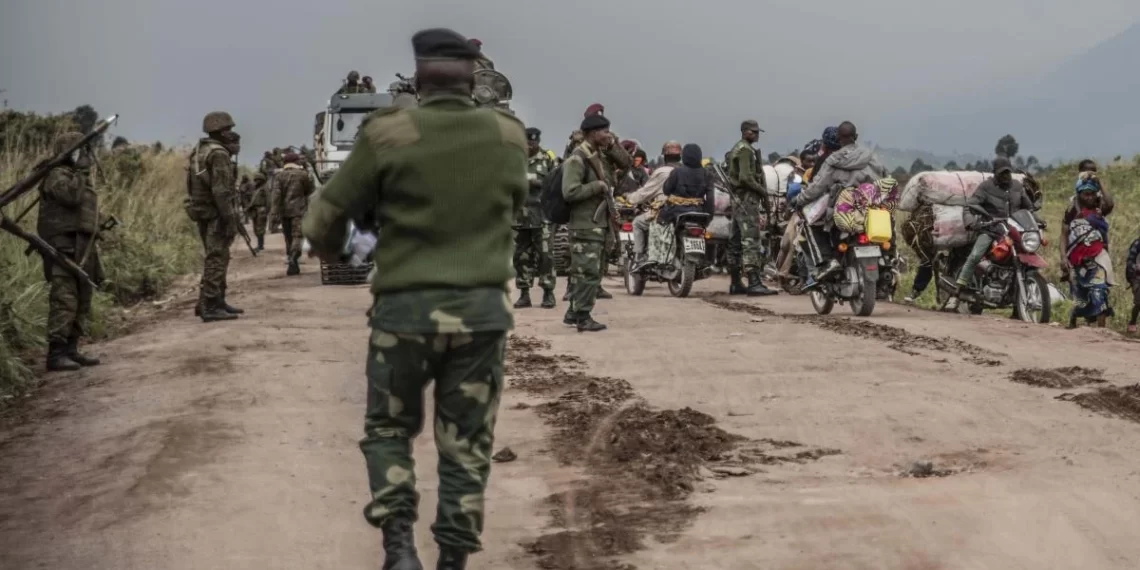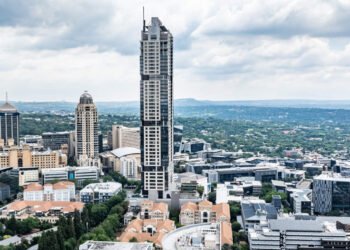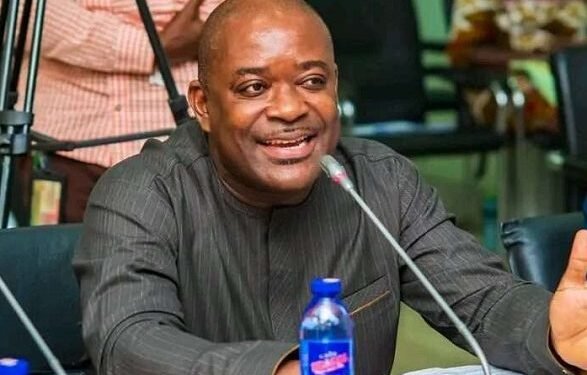Congolese army units backed armed groups implicated in serious abuses in the recent conflict with M23 rebel forces in Eastern Democratic Republic of Congo (DRC), Human Rights Watch disclosed today, Tuesday, October 18, 2022.
Between May and August 2022, the Congolese army with a coalition of Congolese militia as well as the Democratic Forces for the Liberation of Rwanda (FDLR) fought against Rwandan-backed M23 rebels in North Kivu province.
Human Rights Watch noted that at times, some Congolese army officers provided the armed groups with direct support.
“Congolese army units are again resorting to the discredited and damaging practice of using abusive armed groups as their proxies. The Congolese government should end this support, which leads to military complicity in abuses, identify officers responsible, and hold them accountable.”
Thomas Fessy, Senior Congo researcher at Human Rights Watch
The M23 offensive in May 2022 and the takeover of Bunagana, a trading town at the Uganda border, in June this year displaced tens of thousands of people. Despite a lull in the fighting since mid-August, the humanitarian situation in Rutshuru territory, North Kivu, remains critical, adding to an already dire situation in eastern Congo.
Over the past year, armed groups and at times government soldiers have committed widespread abuses, including unlawful killings, sexual violence, and theft, causing the security situation to deteriorate.
Since June this year, Human Rights Watch has interviewed five fighters from armed groups, seven witnesses of abuses and family members of victims, as well as activists, Congolese civilian and military officials, United Nations staff, and aid workers.
Meeting at Pinga
On May 8 and 9, 2022, leaders of several Congolese armed groups, some of them rivals, met in the remote town of Pinga and agreed to a non-aggression pact forming a “patriotic” coalition to join forces with the Congolese army against “the aggressor,” namely the M23.
The groups included: the Patriots’ Alliance for a Free and Sovereign Congo (Alliance des patriotes pour un Congo libre et souverain, APCLS) of Janvier Karairi; the Coalition of Movements for Change (Coalition des mouvements pour le changement, CMC/FDP) of Dominique Ndaruhuste, known as “Domi”; the Nduma Defense of Congo-Renovated (Nduma défense du Congo-Rénové, NDC-R) faction of Guidon Mwisa Shimirai; and the Nyatura Abazungu’s Alliance of Congolese nationalists for the defense of human rights (Alliance des nationalistes congolais pour la défense des droits humains, ANCDH/AFDP) of Jean-Marie Bonane.
Members of the groups and witnesses circulated pictures of the meeting, which several Congolese army officers attended, led by Col. Salomon Tokolonga, who oversees operations and military intelligence at the 3411th regiment. Two FDLR senior commanders were also reportedly present.
All of these armed groups are known human rights abusers in their strongholds, Human Rights Watch noted. Human Rights Watch has previously documented widespread abuses by forces under the command of NDC-R leader Guidon, who remains under UN sanctions. Congolese authorities issued an arrest warrant against him in 2019 for recruiting children, insurrection, and the crime against humanity of rape.
Human Rights Watch received credible information that Congolese army members from Tokolonga’s 3411th regiment provided more than a dozen boxes of ammunition to FDLR fighters in Kazaroho, one of their strongholds in the Virunga National Park, on July 21. Two months earlier, dozens of FDLR and CMC/FDP fighters reportedly took part in a large counteroffensive with government soldiers in the area around Rumangabo and Rugari.
In an unpublished July report submitted to the UN Security Council that leaked to the media, the UN Group of Experts on Congo found that on May 30, an APCLS senior commander “met with a commander of the 34016th regiment in Kitchanga, and received arms and ammunition as well as food stuff.” The investigators stated that “members of the coalition of armed groups received weapons and ammunition from some [Congolese army] members on several occasions.”
Several witnesses and fighters told Human Rights Watch that once near or at the front line, these armed groups would need to find their own food and supplies. Some illegally taxed civilians as a result. “We try to avoid contact with them [the armed groups], but they have requested a contribution from every household for their survival,” a man from Kabaya said.
Human Rights Watch also documented several other cases of abuses against civilians, including at least three killings by FDLR fighters in May and July and two cases of rape by Congolese soldiers in July this year.
READ ALSO: Ghana’s Cedi Slumps To World’s Worst Performer – Bloomberg























